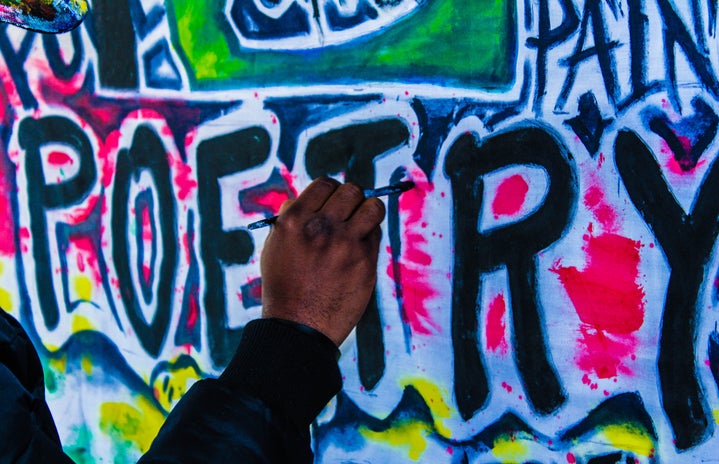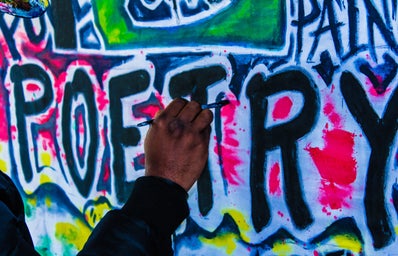Acclaimed author Carole Boston Weatherford and her son, Jeffery Boston Weatherford, are descended from ancestors who were the founders of Maryland. From the scraps of their history, Carole and Jeffery have conjured the voices of their kin, creating a painful but empowering story of who their family were in a breathtaking poetry collection book that is at once deeply personal yet all too universal.
“Kin” captures the voices ranging from the Weatherford’s ancestors to Frederick Douglass, Harriet Tubman, and the land itself, as well as the plantation house that connects them all. The poems are written by Carole while her son illustrated the pictures in a digital scratchboard style. Jeffery’s evocative illustrations help carry the story shaped by loss, erasure and ultimate reclamation.
The daughter of a printer, Carole Boston Weatherford was practically born with ink in her blood. She began writing at age six. She has authored 70-plus books. Her books have garnered two NAACP Image Awards and nine American Library Association Youth Media Awards, including a Newbery Honor, Coretta Scott King Award and four Caldecott Honors. Her career achievements have been recognized with the North Carolina Award for Literature, the Nonfiction Award from the Children’s Book Guild and induction into the North Carolina Literary Hall of Fame.
Jeffery Boston Weatherford has collaborated with Carole on three books. He was a Romare Bearden scholar at Howard University where he earned a Master of Fine Arts degree. Also a performance poet and fine artist, Jeffery has performed or exhibited in the U.S., West Africa and the Middle East.
In this interview, I asked both of them about their familial ties to the collection and how their personal connection aided in their creative process.
What do you hope readers gain from your family’s story through this poetry collection?
Carole Boston Weatherford (CBW): I hope that readers will appreciate the complexities and diversity within the enslaved community. I also hope that young readers will be inspired to probe their own family’s past by interviewing elders and mapping their own family trees. Finally, “Kin” affirms that lineage and family lore contribute to generational wealth.
Jeffery Boston Weatherford (JBW): I hope that readers will be inspired to dig deeper into their own family history and start asking questions to their family members about their lineage and about where they came from. I hope that [young people] comb through the pages of this book will be emboldened to reach high and become all of their ancestors’ wildest dreams.
Since this collection follows your family, why did you choose to write poetry about it? You could have written this as a memoir, for example.
CBW: The beauty of poetry is that it can be multiple genres at once. As a writer, my work blurs the lines between genres. So, “Kin” is poetry and also memoir because I am documenting my quest to find my lineage. But “Kin” is also historical fiction due to the speculation required to reconstruct my ancestors’ narratives from the limited evidence in the archive.
Which poem/illustration was the hardest for you to create emotionally? Which one was the one where you felt you learned the most about yourself through your family’s history?
CBW: The hardest for me to write was “Questions for Doctor and Minister Isaac Copper,” which asks my earliest known ancestor about our family’s African origins. It was heart-wrenching to know that Isaac was enslaved as a child at Wye House and that I may never know where he was born. The poem, “The Forest, the Trees, the Royal Roots,” offered an epiphany–that my great-great-grandfather was known as “the Royal Black” because he could trace his lineage to African royalty.
JBW: The hardest to illustrate was “Nan / Nanny / Nancy Copper” which details the experience of one of the caretakers of the Lloyds’ children. What she went through was unimaginable and her story brings light to the story of countless others. Through the creation of each of these pieces, I learned something new. There is no single piece that I can pick out where I learned more or less, as each poem introduced me to a side of myself that I had never met before.
Your art has a scratchy style to it, and it looks like pencil sketches. What do you think this art style means to you in relation to your mother’s poetry?
JBW: The scratchboard medium is about revealing light out of darkness. The creation process of “KIN” reflects and parallels the process of scratchboard. There was so much history, so many emotions, so many people, to bring to light out of the darkness of the past. I believe that the scratchboard medium is the perfect compliment to the flow of the poetry.
To celebrate the launch of their book, Carole and Jeffery were at Books of Wonder a few nights ago where they discussed their work with bestselling author Rita Williams-Garcia. It was such an honor to meet them and hear what they had to say about literature showcasing the importance of familial ties and understanding where we come from.
Many thanks to Carole and Jeffery for answering my questions! Many thanks to Alex Kelleher-Nargoski from Simon & Schuster’s Children Publishing for giving me the chance to interview Carole and Jeffery. I hardly ever keep poetry books, but when I received a finished copy from Alex, I knew I needed to keep “Kin” in my bookshelf.


